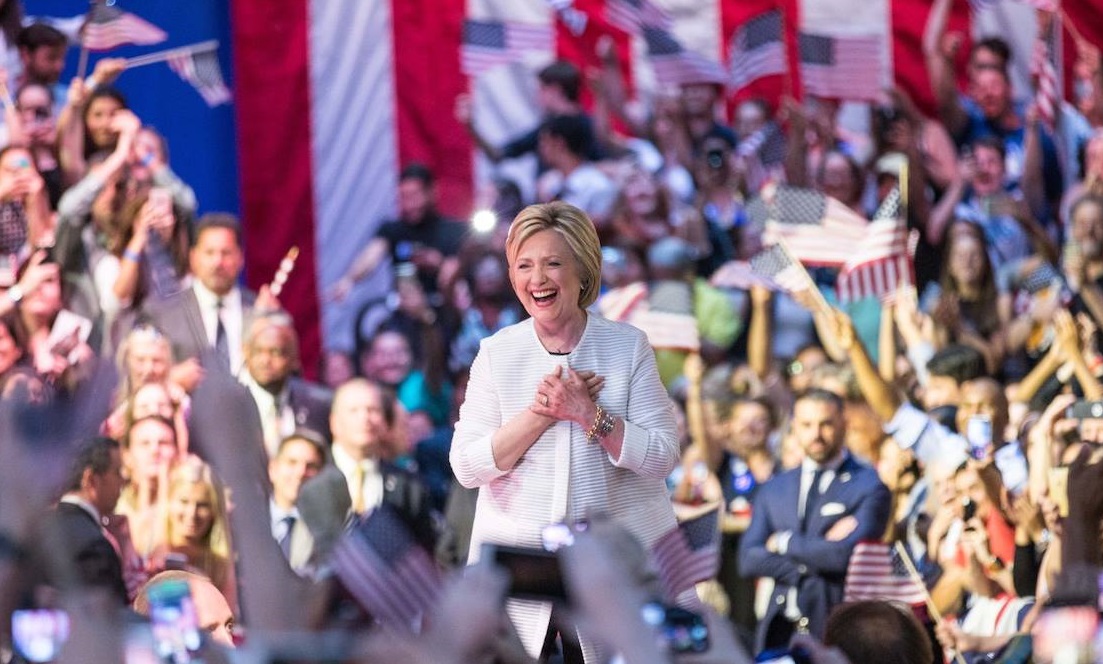
This is a very good piece, and Hillary Clinton’s nomination is of course a milestone that means that, long after many other democratic countries in the world, the United States has, for the first time, a real chance to elect its first female president.![]()
From Victoria Woodhull in 1872 (whose running mate was Frederick Douglass) to Shirley Chisholm in 1972 to Pat Schroder in 1988 to Carol Moseley Braun in 2004, there’s a long line of credible women who have challenged for the presidency, and Clinton’s accomplishment builds upon the stepping stones that they laid down (not least of all her own run for the presidency in 2008).
But without denying this moment’s importance, what’s even more fascinating to me is that someone who has been at the center of American political life for 24 years (I’m not counting over a decade as Arkansas’s first lady), with a record, warts and all, in the first Clinton administration, eight years in the US Senate and four years at State has won a major-party nomination.
The trend, increasingly, has been rapid-fire rises to the top from people who seemingly come out of nowhere. Barack Obama. In a way, George W. Bush, too. Jimmy Carter. Bill Clinton. Enrique Peña Nieto in Mexico, Justin Trudeau in Canada, Tony Blair and David Cameron in Britain. There’s just something undeniably attractive about a ‘shiny new toy’ in electoral politics.
Whatever else, Hillary Clinton is not a shiny new toy. Continue reading Clinton clinches nomination after 24 years as national political figure

